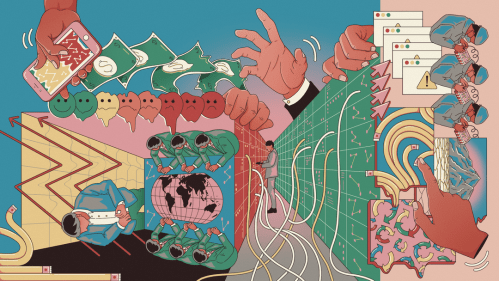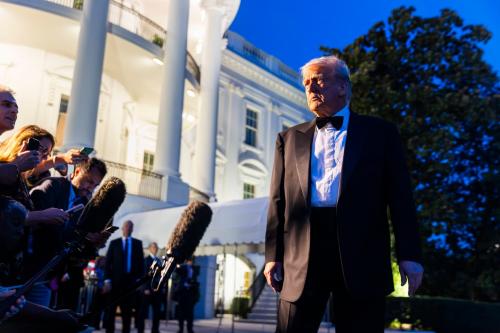Saad Mohseni, the CEO of the Moby Group in Afghanistan, gave a sober and clear-eyed but still uplifting account of the state of things in his country when visiting Brookings in late September. He touched on everything from the security situation to the upcoming presidential elections in his country to Afghanistan’s relationship with the United States and also to the character and motives of Afghan president Hamid Karzai.
In my interview with Mohseni, the first topic was Afghanistan’s recent triumph in a South Asia soccer (football) tournament. Not only did this provide some much-needed levity in a country that has suffered so much for a generation, it also helped bring the nation together. As Saad put it, about the championship game, “…the people were lined up literally, they’re saying a hundred thousand people came out, thirty or forty thousand in the stadium, the football players were there, so were many politicians.”
Continuing the theme of national unity, even in the face of ongoing strife and violence and other centrifugal forces, Saad said “….we’ve been together for two centuries. It’s not a new country….So people do feel very Afghan.” There was no happy talk in his narrative, as he also recounted the terrible ethnic-based and militia-based violence of the past 30 years, but in Mohseni’s eyes, the basis for fostering greater cohesion as a nation and people in the years ahead is substantial.
Hamid Karzai remains a figure of great fascination, complexity, and importance, and Mohseni, who knows the Afghan president well, offered great insight in fathoming this historic figure. He offered a number of criticisms, but also some empathetic words that western audiences would do well to remember. For example, “…you can almost appreciate his predicament, let’s say, with war lords. He basically gets told in 2001 that you have to work with these people. Then in 2004 he’s told he should ban these people. And then later on he’s told he should have a more inclusive approach to work with these people. So I think what confuses him is the contradictory approaches from the international community.”
And on the Taliban, Mohseni offers a hopeful assessment of the limits of their power and influence. “They don’t occupy any major city, or any major district, certainly not a province. They have a fighting force of ten to twenty thousand individuals. Not a huge force, if you compare it to the Afghan National Security Forces of three hundred thousand plus. They’re not very popular. Their popularity, their approval rating is less than ten percent, even in the south….it is less than thirty percent….They can be a nuisance, and they have been a nuisance, but you cannot expect this force to completely take over the country. I don’t see that happening.”
With a mixture of humor and wisdom, Mohseni also offers a take on what motivates those forces in Pakistan that continue to harbor, condone, or support the Afghan Taliban. “…they actually genuinely believe that the Taliban represents the majority of Afghanis. And I jokingly refer to them as the Chardonnay Taliban, because while they’re sipping their Chardonnays, in their houses in Lahore, they’re advocating a Taliban style government in our country….Its only time that’s going to actually prove that, for them to realize that Afghanistan has changed. You know they always say, the Taliban says that time is on their side because the Americans will leave. But the exact opposite will happen on January 1, 2015. Every day that the Taliban have not captured a major city, or a major province, or a major part of the country, the myth will be destroyed. So I think that we will have to have a serious conversation late 2015 and 2016, because it’s only then the Pakistans will realize that they will not be able to just completely see a collapse of the country a la 1993 or 1994.”
The complete transcript of Mohseni’s appearance is available on the event announcement page.
The Brookings Institution is committed to quality, independence, and impact.
We are supported by a diverse array of funders. In line with our values and policies, each Brookings publication represents the sole views of its author(s).



Commentary
Saad Mohseni’s Hopeful Vision for Afghanistan
September 30, 2013